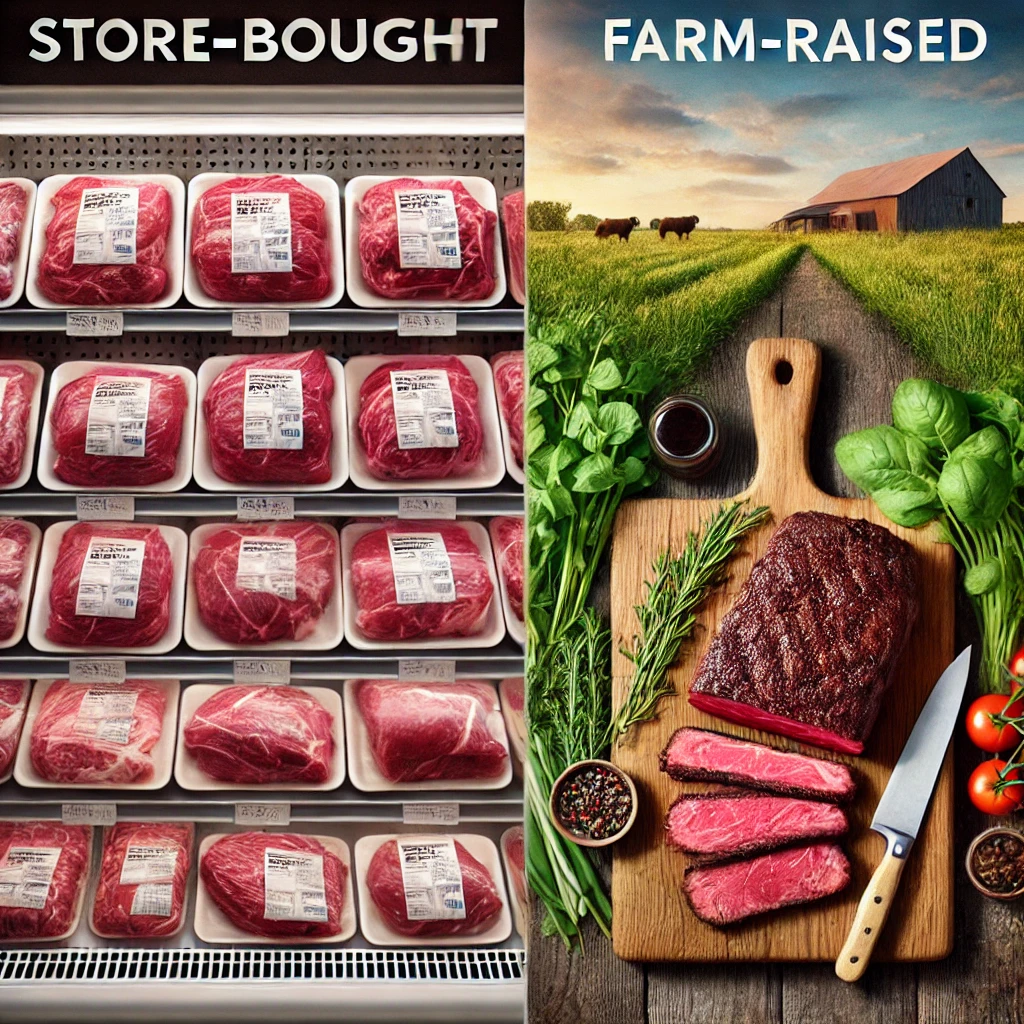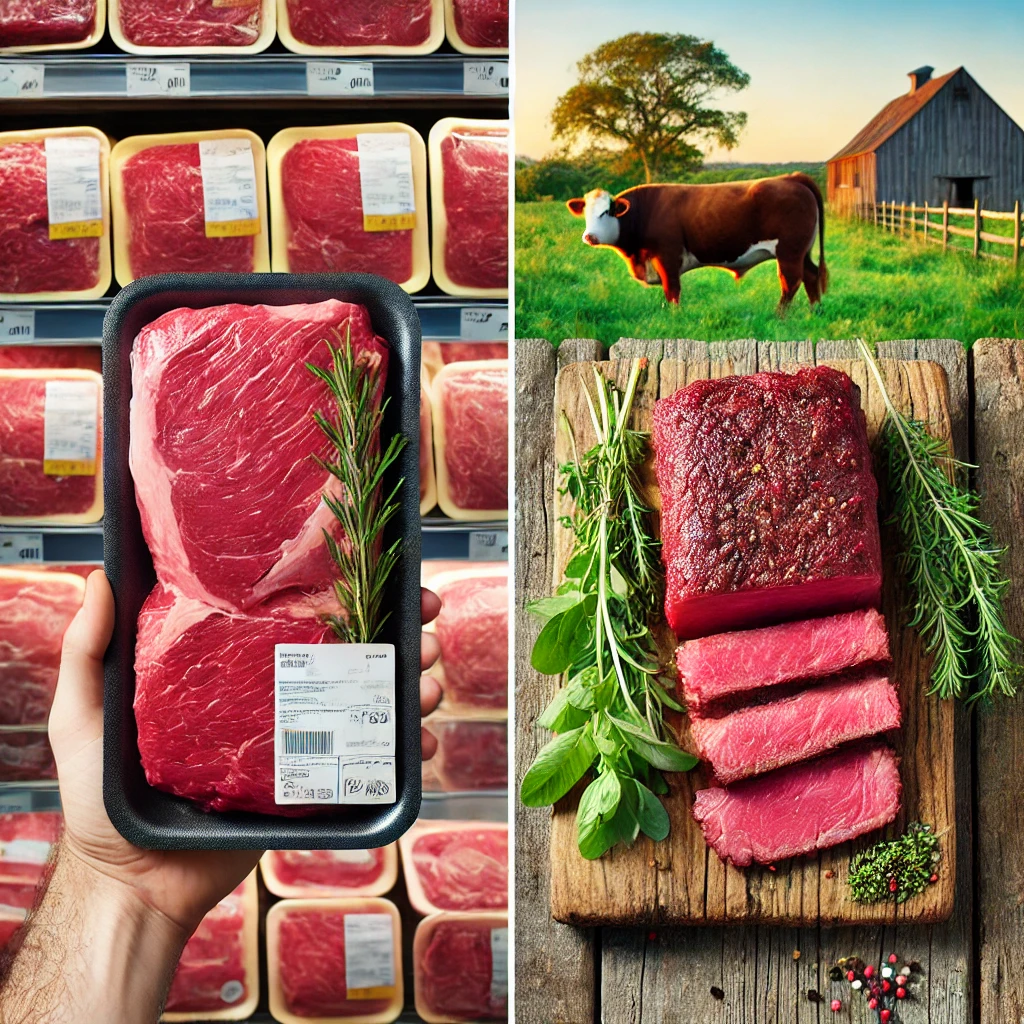Disclaimer: Some Pictures are generate by A.I, Pls enjoy the reading as a knowledge

When purchasing beef, your choice plays a pivotal role in shaping the flavor, quality, and even the ethical and health implications of the meat you consume. Store-bought and farm-raised beef are fundamentally different, with distinctions that go beyond appearance to impact both your well-being and the environment. Understanding these differences can help you make informed decisions that align with your values and dietary preferences.
Appearance and Additives

One of the most noticeable differences between store-bought and farm-raised beef is the appearance. Store-bought beef often has a lighter, pinkish hue, which is achieved through the addition of preservatives and color-enhancing additives such as propyl gallate. These substances are used to prolong shelf life and make the meat more visually appealing to consumers. While they serve these purposes effectively, they also introduce artificial chemicals into the meat, which are later consumed by you and your family.
In contrast, farm-raised beef tends to have a darker, richer color. This is because it is often fresher and free from artificial additives. The natural appearance of farm-raised beef reflects its unaltered quality, offering a more authentic product that aligns with the expectations of many health-conscious and environmentally aware consumers.
Flavor and Quality

The taste of beef is heavily influenced by the animal’s diet and lifestyle. Store-bought beef typically comes from cattle raised in large-scale operations where animals are often fed a grain-based diet, including corn and soy. While this method promotes rapid weight gain, it can result in meat that is less flavorful and marbled with less natural fat compared to its farm-raised counterpart.
Farm-raised beef, on the other hand, usually comes from cattle that graze on grass and roam more freely. This grass-fed approach not only enhances the flavor but also contributes to a richer, more complex taste profile. Additionally, the meat often contains healthier fats, including higher levels of omega-3 fatty acids, which are beneficial for heart health.
Health Implications
Another significant difference lies in the health implications of consuming these two types of beef. Store-bought beef often contains residues of hormones and antibiotics used in conventional farming practices. These substances are introduced to promote faster growth and prevent disease in crowded feedlots. However, their presence in the meat can raise concerns about potential health risks, including antibiotic resistance and hormonal imbalances.
Farm-raised beef is typically free from these additives. Many small-scale farms adhere to strict standards, raising their cattle without the use of hormones or antibiotics. This cleaner approach to beef production can provide a safer, more wholesome option for consumers seeking to minimize their exposure to synthetic substances.
Environmental and Ethical Considerations
The environmental and ethical impacts of beef production are also worth noting. Store-bought beef often originates from large-scale industrial operations known for their significant environmental footprint. These facilities contribute to deforestation, greenhouse gas emissions, and water pollution, which exacerbate climate change and harm ecosystems. Additionally, the treatment of animals in these systems often raises ethical concerns, as cattle are typically confined to limited spaces with minimal consideration for their welfare.
Farm-raised beef, particularly when sourced from local farms, is generally more sustainable and ethical. Small-scale farms often employ rotational grazing practices that promote soil health and reduce environmental damage. Furthermore, animals raised in these systems are typically given more space to roam and live in more humane conditions, reflecting a higher standard of care.
Making an Informed Choice

Choosing between store-bought and farm-raised beef depends on your priorities. Store-bought beef offers convenience and affordability, but farm-raised beef delivers superior quality, health benefits, and aligns with sustainability and ethical considerations.

